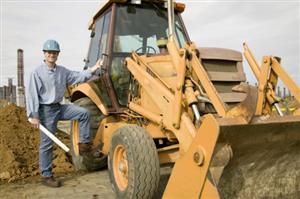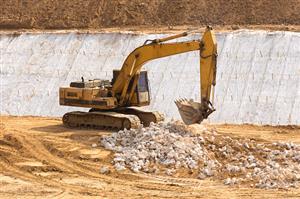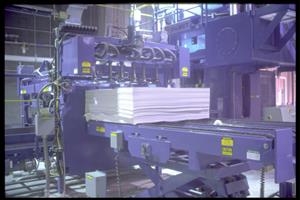
When most people call an appraisal firm, it's to get information about having an appraisal performed. But because of the number of calculations involved and the knowledge behind those calculations, another question that is frequently asked is what does a machinery appraiser actually do every day? Here's a quick look at the regular tasks that take place in an equipment appraisal firm.
What does a machinery appraiser actually do on the job?
They talk to you on the phone, show up at your location, hem and haw over your equipment, go away, then present you with a report of their findings. Machinery appraisers have a somewhat mysterious job, because much of it is hidden behind the scenes. Here's what happens during the equipment appraisal process:
- When you first call in, the appraiser may be overseeing any number of projects, studying for continuing education for their certification, studying the newest figures on the longevity of a particular model of equipment or catching up on how the market is impacting values for specialty equipment within a specific industry.
- As they gather the initial information on your equipment, they're already going into calculation mode. "Does that have the optional backhoe?" they ask, knowing this will kick the value up further. "How many hours does it have on it?" knowing that particular model tends to either fade out at 4,000 hours or go strong up into the 10,000-hour range.
- Once they've gathered the initial information, they verify their own impressions of what the machinery is valued at. Though they may remember the estimated value as a starting point for a range of machinery, equipment that they're not familiar with will require them to find a baseline value from which your machinery's condition factors will be taken into account.
- When they arrive to inspect your equipment, it seems like they're spending a lot of time just looking at it. However, in that time, they're looking at whether the pulleys or gears are aligned, if the machine is making any unusual sounds, whether that stain is just an old issue or a sign or a serious hydraulic problem and similar aspects of the equipment that will impact its value.
- Back in the office, they take a solid look at the market. If you have oilfield equipment and the industry is in a bust cycle, that will have to be reflected in a lower value on your equipment. If, however, they see that there's a hot new discovery that's being leveraged, they can provide you with that information so that you can sell at a better price outside of your region.
- Finally, they take all this information to develop a solid valuation report. This report takes into account the market conditions, type and model of equipment, the condition the equipment is in, its expected useful lifespan and any number of other factors to calculate a final value for your equipment. It's written up neatly and can be appealed for a revision if the value doesn't seem correct.
By gaining a better understanding of what happens behind the scenes at an appraisal firm, you gain a better grasp of the knowledge and experience that a machinery appraiser must have to complete their job on a daily basis. When you understand this, it gives you a better appreciation for the information these certified professionals are able to provide about your company's equipment assets.



